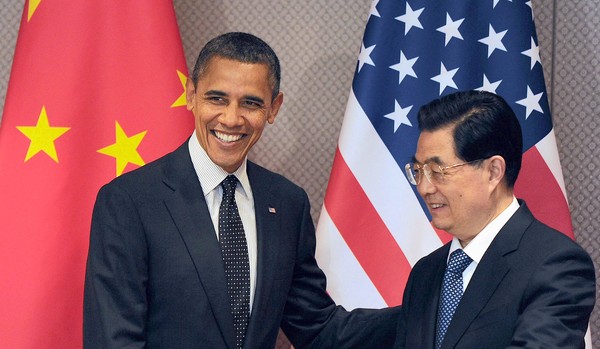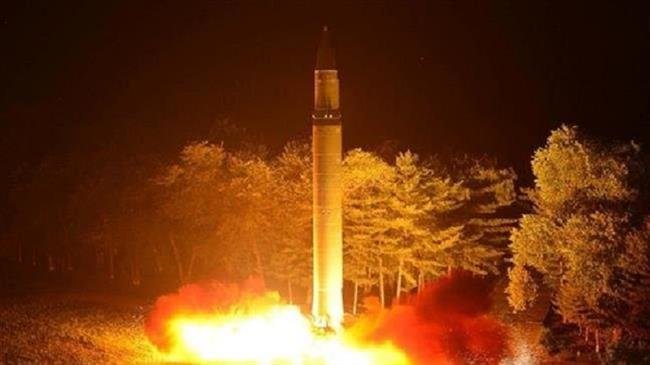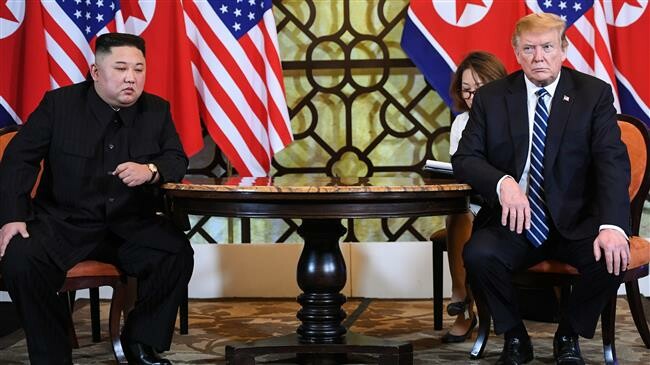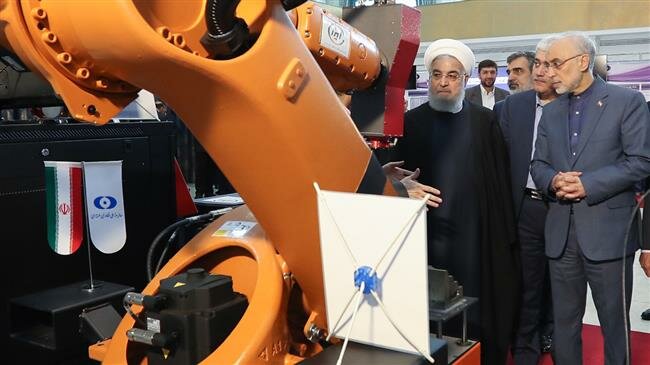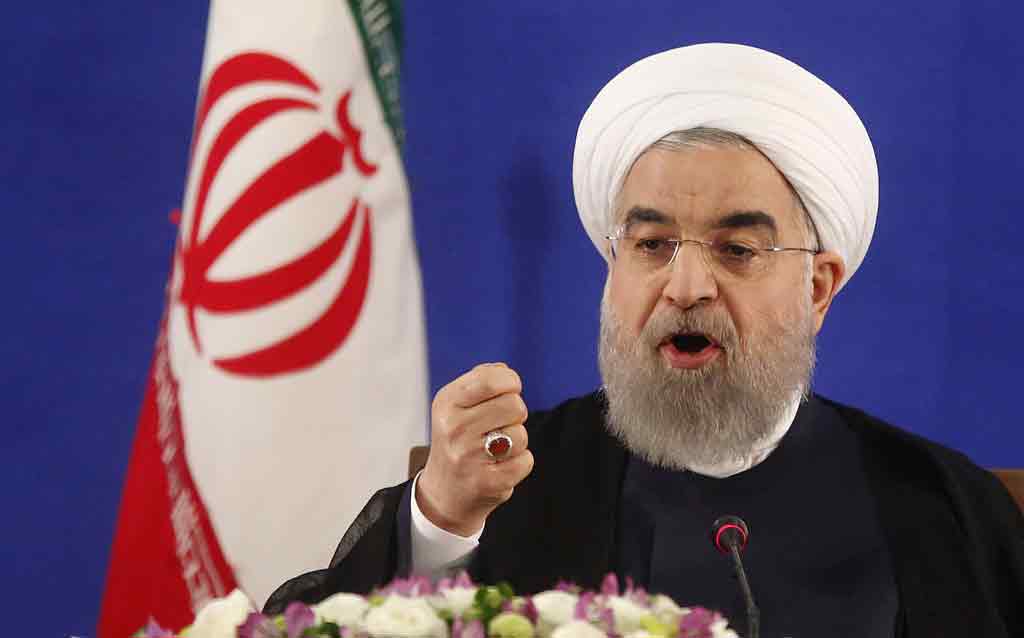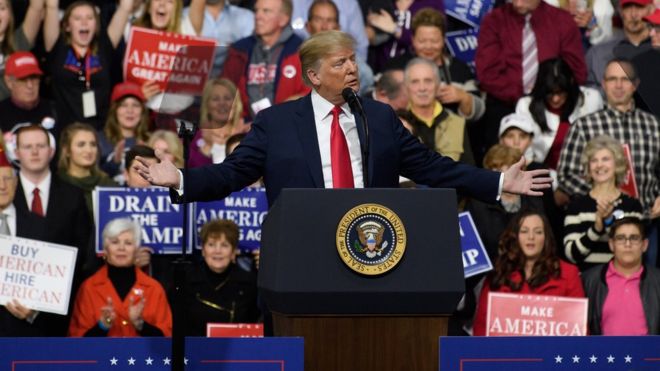President Obama on Monday pressed Chinese President Hu Jintao to do more to persuade North Korea to scuttle plans for a rocket launch, asking the North Korean regime's closest ally to push Pyongyang's new leaders toward internationally acceptable behavior, but getting no immediate commitment, according to senior U.S. officials.
Publish dateTuesday 27 March 2012 - 19:27
Story Code : 38657
China has expressed concerns about the impending launch, which the U.S. and its allies call a violation of international law and a cover for testing a missile as part of North Korea's nuclear weapons program. In a 90-minute meeting before a nuclear security summit, Obama urged Hu to press harder, said deputy national security advisor Ben Rhodes La Times reported.
"Frankly, China has expressed those concerns before, and North Korea has continued on with its behavior, which is outside of international law and outside international norms," Rhodes told reporters after the meeting, the 11th between the president and Hu. "China needs to look at whether it needs to be doing more above and beyond the messages and warnings it's been giving to affect North Korea's calculus."
Rhodes declined to characterize Hu's reaction to Obama's request.
One possible inducement for Hu is that Japan and South Korea have strengthened ties with the U.S. in response to China's relatively low-key responses to previous North Korean actions that were seen as provocations.
Obama's call for action by China may have been intended as a warning that unless Beijing takes action, it risks further alienating the South Koreans and Japanese. A couple of years back, for example, Beijing appeared to turn a blind eye to North Korea's sinking of a South Korean warship, stirring concern in Seoul and Tokyo and leading the two countries to strengthen their security ties with Washington.
North Korea's planned rocket launch has dominated conversation ahead of the second Nuclear Security Summit, a global meeting on safeguarding poorly protected nuclear material. Even in a broad policy speech by Obama aimed at touting his record on nonproliferation and reducing the world's nuclear arsenal, the president included a direct appeal to the nation that has most frustrated that record.
"There will be no more rewards for provocations. Those days are over," he declared, saying that his words were aimed directly at the North Korean leadership.
Obama on Sunday signaled his plans to press the Chinese president, telling reporters that the current approach is not working.
"I believe China is very sincere that it does not want to see North Korea with a nuclear weapon," Obama said. "But it is going to have to act on that interest in a sustained way."
At the same time, he held up China as an example of the economic benefits of opening up to the West.
"And the irony, of course, is that during the last 20 years China has leaped into the 21st century, in part by abandoning some of the practices that North Korea still clings to," he said.
Still, the Chinese have not successfully prodded the notoriously secretive and isolated North Korea to change its ways. Some analysts are skeptical that this moment will be any different.
Although the Chinese oppose North Korea's nuclear program, they have not always been willing to use all the levers at their disposal to prod Pyongyang to relent. China remains the primary benefactor of its impoverished neighbor, prioritizing stability and its own political interests over disarmament, analysts said.
"North Korea is a good buffer against the U.S. for China," said Kim Seung-hwan, a senior associate at the Center for Strategic and International Studies, a South Korean think tank. "If the North gives in and the two Koreas unite, U.S. influence will reach up to Yalu River, right at the border of China and Korea, which China does not want to see."
Appearing to stand up to the Chinese can have its own benefits for Obama.
Election years often see politicians turn up the tough talk on China, and this one is no exception. Obama's Republican rivals have frequently characterized the president as being soft on China when it comes to trade, currency and North Korea.
Obama also discussed North Korea with Russian President Dmitry Medvedev. Speaking briefing after the private meeting, Obama said both nations agreed on the need to "send a message to North Korea that they should not go forward with this missile launch."
"Frankly, China has expressed those concerns before, and North Korea has continued on with its behavior, which is outside of international law and outside international norms," Rhodes told reporters after the meeting, the 11th between the president and Hu. "China needs to look at whether it needs to be doing more above and beyond the messages and warnings it's been giving to affect North Korea's calculus."
Rhodes declined to characterize Hu's reaction to Obama's request.
One possible inducement for Hu is that Japan and South Korea have strengthened ties with the U.S. in response to China's relatively low-key responses to previous North Korean actions that were seen as provocations.
Obama's call for action by China may have been intended as a warning that unless Beijing takes action, it risks further alienating the South Koreans and Japanese. A couple of years back, for example, Beijing appeared to turn a blind eye to North Korea's sinking of a South Korean warship, stirring concern in Seoul and Tokyo and leading the two countries to strengthen their security ties with Washington.
North Korea's planned rocket launch has dominated conversation ahead of the second Nuclear Security Summit, a global meeting on safeguarding poorly protected nuclear material. Even in a broad policy speech by Obama aimed at touting his record on nonproliferation and reducing the world's nuclear arsenal, the president included a direct appeal to the nation that has most frustrated that record.
"There will be no more rewards for provocations. Those days are over," he declared, saying that his words were aimed directly at the North Korean leadership.
Obama on Sunday signaled his plans to press the Chinese president, telling reporters that the current approach is not working.
"I believe China is very sincere that it does not want to see North Korea with a nuclear weapon," Obama said. "But it is going to have to act on that interest in a sustained way."
At the same time, he held up China as an example of the economic benefits of opening up to the West.
"And the irony, of course, is that during the last 20 years China has leaped into the 21st century, in part by abandoning some of the practices that North Korea still clings to," he said.
Still, the Chinese have not successfully prodded the notoriously secretive and isolated North Korea to change its ways. Some analysts are skeptical that this moment will be any different.
Although the Chinese oppose North Korea's nuclear program, they have not always been willing to use all the levers at their disposal to prod Pyongyang to relent. China remains the primary benefactor of its impoverished neighbor, prioritizing stability and its own political interests over disarmament, analysts said.
"North Korea is a good buffer against the U.S. for China," said Kim Seung-hwan, a senior associate at the Center for Strategic and International Studies, a South Korean think tank. "If the North gives in and the two Koreas unite, U.S. influence will reach up to Yalu River, right at the border of China and Korea, which China does not want to see."
Appearing to stand up to the Chinese can have its own benefits for Obama.
Election years often see politicians turn up the tough talk on China, and this one is no exception. Obama's Republican rivals have frequently characterized the president as being soft on China when it comes to trade, currency and North Korea.
Obama also discussed North Korea with Russian President Dmitry Medvedev. Speaking briefing after the private meeting, Obama said both nations agreed on the need to "send a message to North Korea that they should not go forward with this missile launch."
Source : Afghan Voice Agency (AVA), Kabul
avapress.com/vdca0ine.49nam1gtk4.html
Top hits
